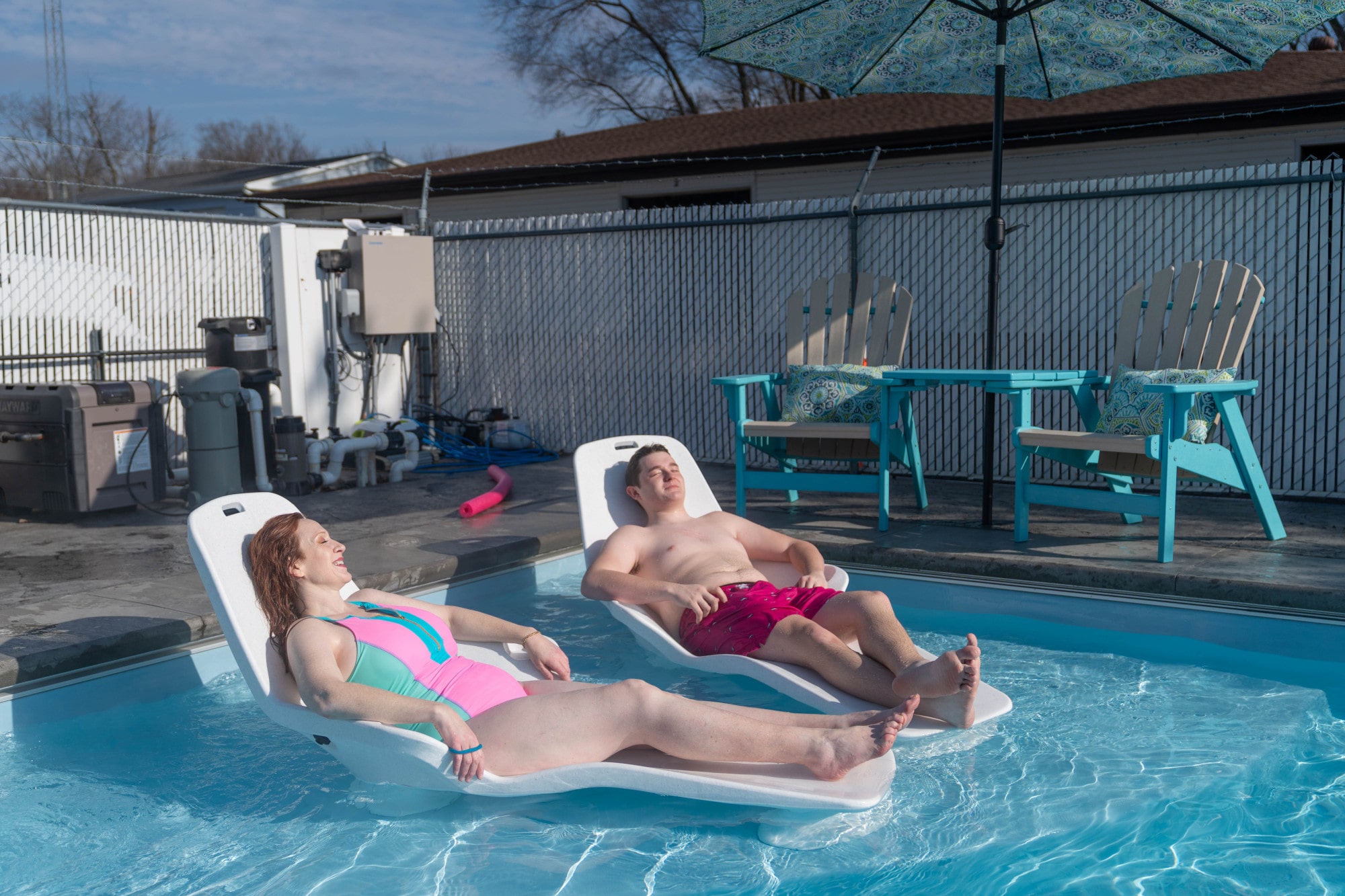Weighing the benefits of a fiberglass vs concrete pool installation can be crucial to your home’s enjoyability, beauty, and value. With swimming pools being such a costly investment, you want to make the most informed decision possible. And, cost aside, most homeowners want to pick the option that will add the most joy to their backyards.
So, with summer fast approaching and decisions needing to be made, what kind of pool is best for you? Does the ease of maintaining a fiberglass pool appeal to you? Or do you prefer the customizability of a concrete pool? In today’s post, we’re going to take a look at the pros and cons of fiberglass vs concrete pool installations.
Both fiberglass and concrete pools increase your home’s value.
One of the main considerations when installing a swimming pool is your home’s value. In most cases, real estate experts agree that a pool can increase your home’s value by up to 7%. If your home is worth $300,000, you could see its value increase by $21,000 if you install a pool.
With fiberglass vs concrete pool installations, fiberglass is faster.
If time is of the essence, you can’t go wrong with a fiberglass pool. In fact, in the fiberglass vs concrete pool debate, installation time is one of the main benefits offered by fiberglass pools. With an installation period of 3 to 4 weeks, your site can be prepared, excavated, plumbed, and installed in less than a month.
But, concrete pools do offer a more customized look.
One of the only drawbacks of fiberglass pools is customizability. While there are a wide variety of shapes and sizes available, they are only available in pre-made designs. With a concrete pool, you are less limited and, in most cases, can better fit the design to your landscape. So, if you have an extremely specific look in mind, a concrete pool may be your best choice.
Considering fiberglass vs concrete pool costs, which is more affordable?
When it comes to installation, both concrete and fiberglass pools are similarly priced. But, over time, fiberglass edges out concrete due to its low maintenance costs. Equipped with an algae-resistant surface, fiberglass pools are much, much easier to keep clean. The porous surface of concrete pools is more prone to algae growth. As a result, they experience more corrosion, which can lead to cracks and costly repairs.

Still not sure if you’d rather have a concrete or fiberglass pool?
At Locey Swim & Spa, we work closely with our customers to determine the best swimming pool for their homes. Aiming to understand their needs, our experts have years of experience weighing the pros and cons of all models. So, if you’re still not sure which pool is best for you, we encourage you to reach out to us today to discuss your options.
